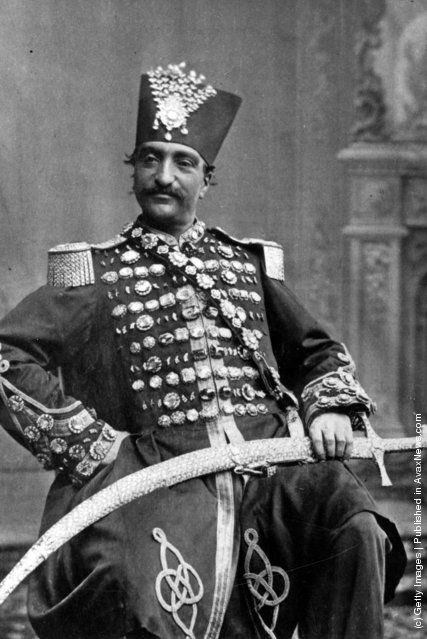Adicto al lujo
Adicto al lujo
Adicto al lujo

Nasser-al-Din. "Es que no podria dormir sin mi dosis de diamantes"
En un intento desesperado por mantener los lujos a los que acostumbraba la dinastía persa de los Qajar, el gobernante Nasser-al-Din intentó vender a Paul Reuter los derechos a exclusivos de todos los recursos económicos de Irán (incluyendo todos los bancos, minas y ferrocarriles) por 40.000 libras (unos US$ 5 millones de 2010), más 10.000 libras anuales (unos US $ 3,1 millones de 2010) por 25 años.
Cuando la oferta se supo, se vio obligado a cancelar.
Vota!
Fuentes
1-Persia and the Persian question, Vol. I, London, Frank Cass and Co., 1966, p. 480.
2-Burke, Andrew; Elliot, Mark. "Iran". Lonely Planet, 5ta edición, Julio de 2008. ISBN 9781741042931. Pág. 35 http://books.google.com/books?id=gEca_4iSNCUC&pg=PA35
[t]he concession was dated July 25, 1872. When published to the world, it was found to contain the most complete and extraordinary surrender of the entire industrial resources of a kingdom into foreign hands that has probably ever been dreamed of, much less accomplished, in history. Exclusive of the clauses referring to railroads and tramways, which conferred an absolute monopoly of both those undertakings upon Baron de Reuter for the space of seventy years, the concession also handed over to him the exclusive working for the same period of all Persian mines, except those of goldsilver, and precious stones; the monopoly of the government forests, all uncultivated land being embraced under that designation; the exclusive construction of canals, kanats, and irrigation works of every description; the first refusal of a national bank, and of all future enterprises connected with the introduction of roads, telegraphs, mills, factories, workshops, and public works of every description; and a farm of the entire customs of the empire for a period of twenty-five years from March 1, 1874, upon payment to the Shah of a stipulated sum for the first five years, and of an additional sixty per cent of the net revenue for the remaining twenty. With respect to the other profits, twenty per cent of those accruing from railways, and fifteen per cent of those derived from all other sources, were reserved for the Persian Government.



